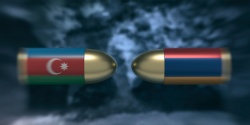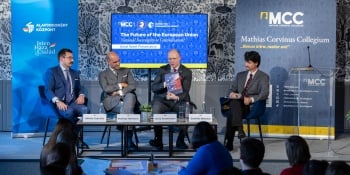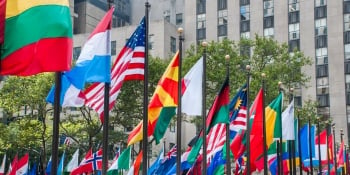Published: 14.10.2020

In recent times, information has been circulating around the world about the conflict between Armenia and Azerbaijan over Nagorno-Karabakh. Hundreds of people have died as a result of military action in this region and thousands have been forced to leave their homes. Numerous houses, schools and hospitals have also been destroyed. The Ordo Iuris Institute has sent a letter to the Secretary-General of the United Nations, the Polish Minister for Foreign Affairs and the ambassadors of both countries, in which it expressed concern about the humanitarian crisis in Nagorno-Karabakh. It also called for immediate action to be taken to resolve the dispute peacefully.
Nagorno-Karabakh has been the subject of a territorial conflict between Armenia and Azerbaijan since the 1990s. Shortly after the collapse of the Soviet Union, Nagorno-Karabakh, which is part of Azerbaijan’s territory, declared itself an independent republic, while striving to strengthen ties with neighbouring Armenia. Since then, both sides have been competing for influence in the region, the last time in 2016 – which has led to armed conflicts. Despite the passage of many years, the Republic of Karabakh has still not received international recognition – all countries of the world still recognise the region as part of Azerbaijan.
On 27 September 2020, Azerbaijani troops carried out artillery shelling of selected cities located on the Nagorno-Karabakh territory, to which Armenia responded with military mobilisation. Direct clashes between land forces took place shortly afterwards. The total number of casualties is not known, but according to media reports, it is estimated that hundreds of people died on both sides, including not only soldiers, but also innocent civilians.
The International Committee of the Red Cross, which has been present in the Nagorno-Karabakh region since 1992, provides ongoing information on the suffering of civilians. Hundreds of homes, schools and hospitals have been destroyed by artillery fire and thousands of people have been forced to leave their homes.
The Board of the Ordo Iuris Institute has sent a letter to the UN Secretary-General, the Polish Minister for Foreign Affairs and the Ambassadors of Azerbaijan and Armenia in which it expresses its concern about the situation and recalls the obligations incumbent on both sides of the conflict under the European Convention on Human Rights and international humanitarian law.
‘The prolonged acts of war inevitably result in violations of human rights, in particular the right to life (Article 2 ECHR) and freedom from torture and inhuman or degrading treatment (Article 3 ECHR). Civilians are deprived of basic humanitarian aid’, stresses the Ordo Iuris Institute.
The letter ends with an appeal: ‘For these reasons, the Ordo Iuris Institute wishes to join the group of non-governmental organisations and institutions calling for immediate international action to protect civilians and ensure peace in the Nagorno-Karabakh region’.

• Representatives of Ordo Iuris took part in the second round of consultations ahead of the 58th Session of the UN Commission on Population and Development (CPD58) on global health policy.


• The European Union’s Council Conclusions on EU Priorities in UN Human Rights Fora in 2025 identify key areas of EU human rights activities at UN fora and refers to several universal human rights, such as freedom from torture and freedom of religion or belief.

• Last week, experts from the Ordo Iuris Institute attended the 69th session of the UN Commission on the Status of Women (CSW) in New York, the largest global gathering of countries and organizations focused on women's rights.